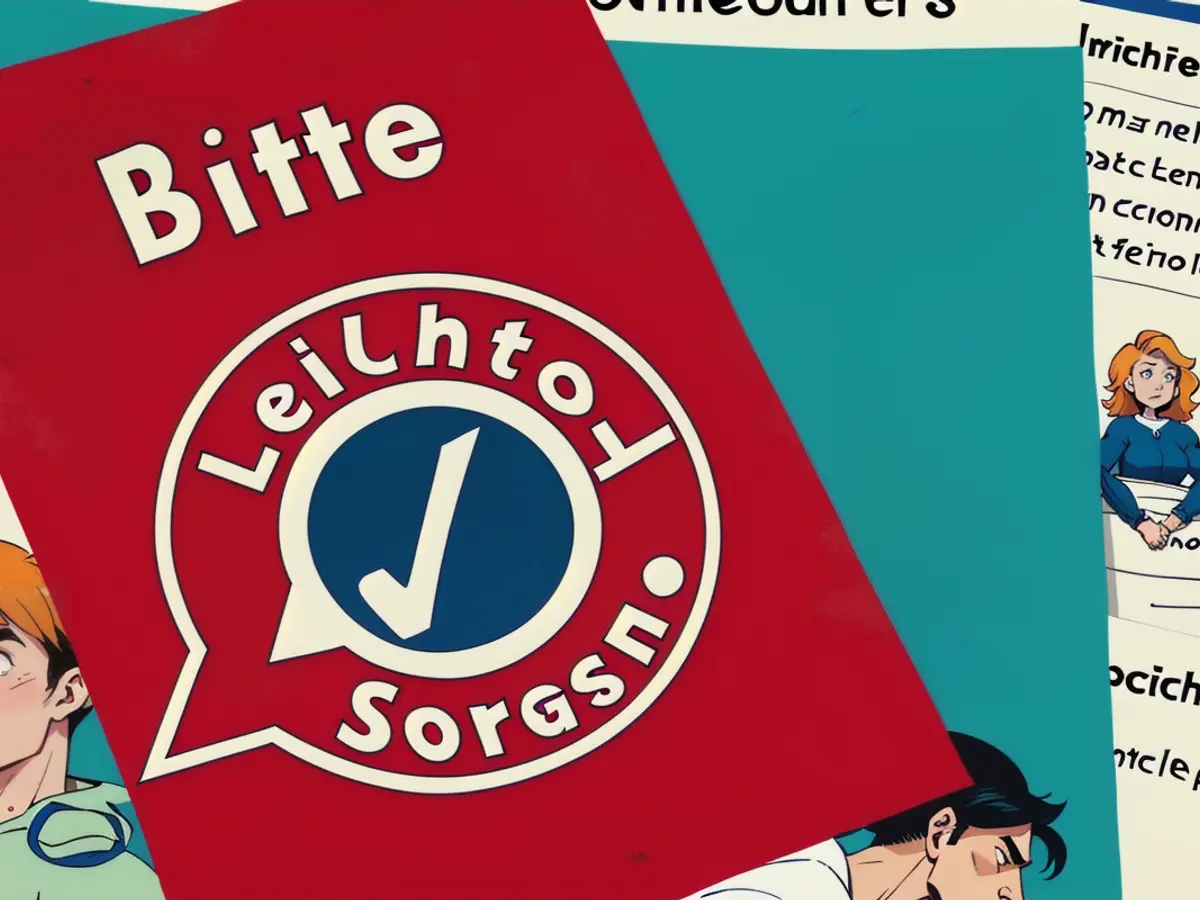Engaging in community activities - The challenge of using plain language may not be as simple as it seems.
Making it simple isn't a piece of cake - Simplified language is challenged.
Understandable language is sometimes mistaken for being easy. However, creating intricate texts in simplified language (SL) can be incredibly difficult. According to experts, SL is significant, valuable, and helpful for millions of Germans who often face language barriers. On Slip and Slide Day, many advocates demand more access to this kind of communication and point to numerous construction projects.
Who benefits from simplified language?
SL is viewed as the key to inclusive communication, enabling individuals with reading and writing challenges to participate and make choices. The target audience includes people with intellectual disabilities or dementia, people with learning issues or limited German skills - and everyone who struggles with complex texts, like bureaucratic writing. SL is still not prevalent enough.
Where is simplified language useful?
SL is language that is easy to comprehend. Even complex topics can be explained through simplified language. Interpreter Anne Leichtfuß, one of the few individuals in Germany who can translate simultaneously in SL, states, "Simplified language is language that everyone understands." She believes: A communication in SL can be advantageous for a lot of people in many places. It's challenging to complete a tax return or apply for housing benefits. "If these processes were made simpler, it would save countless people a ton of time and effort."
A nebulous concept without a clear definition or set of rules
SL is not a protected term. The Network for Simplified Language - a Berlin-based organization - has made recommendations. They advise avoiding complex words and sentence structures. For example, rather than "professional rehabilitation after an accident," you might say, "learn a new profession after an accident." It is important that people who rely on SL test the comprehensibility of texts. The Federal Ministry of Labor and Social Affairs has produced a guide together with the network. Numerous institutions, authorities, or ministries are also providing information in SL.
More work still needs to be done
"So far, there is no clear and binding legislation on simplified language in Germany," complains Anne Leichtfuß. According to studies, around 14 million people in Germany need simple or easy language. The offer is still inadequate and quite limited. "The majority of the population isn't legally entitled to simplified language in everyday life - at the doctor's office, in the workplace, or in the media."
Inquiries for Anne Leichtfuß are becoming more diverse, including requests for museum tours, member meetings, conferences, web videos, and audio guides. The shortage of SL interpreters is significant, and she laments, "We can't keep up with the entire nationwide demand with only ten people nationwide."
How does simplified language function?
Sentences are short, with just one piece of information in each sentence. Complex words and abbreviations are explained. As a general rule, Bettina Bock highlights, "As simple as possible, and as understandable as possible." The texts should be instantly recognizable to the target group, while avoiding a stigmatizing appearance, says the researcher from the Institute for the German Language at the University of Cologne. There should not be an overwhelming amount of repetition, and a balance between simplicity and clarity must be maintained. Those who use LS do not aspire to be viewed as "stupid."
Safeguarding the richness of language is misguided fear
The belief that the depth of language will dissipate is unfounded, says Leichtfuß. Instead, she asserts, "With SL, we can add a lot of meaning." LS is generally intended as an extra option. Workshops and Leichtfuß's LS testing team consist of individuals from the target demographic. She also supports the editorial team of the magazine "Ohrenkuss" - a publication featuring authors and authors with Down syndrome. LS in written form can be learned from various sources, but not mute translation, she laments.
SL - a legitimate demand
There is already an extensive array of SL texts and materials available, but Bock demands, "We need more, and above all the quality should be considerably better." The unfortunate reality is, "There are plenty of poorly crafted texts." Bock, who has written several books on the subject, emphasizes, "Light Language is demanding. The target audience is highly diverse. The better you know your text's audience, the more accurately you can craft in SL." If a text in SL is well crafted, a version in standard language can be developed.
In the past few years, research has been conducted on the topic of LS, and it has gained more attention in the public eye, says Bettina Bock. Not only that, but Light Language has also sparked controversy, with discussions about language degradation and cultural decline happening frequently on social media. Some even question the future of the country of poets and scholars.
Read also:
- Floods: water levels remain critical in many places
- Snow chaos further restricts Bavaria
- Continuous operation in the flood areas
- Flood situation remains tense in many places
- Simplified language is also beneficial in regions like North Rhine-Westphalia (NRW), as Anne Leichtfuß, an interpreter who specializes in simplified language (SL), has pointed out.
- In Berlin, the Network for Simplified Language advocates for the use of SL in various contexts, such as bureaucratic procedures and educational materials.
- Despite the efforts of organizations like the Network for Simplified Language, individuals with limited language skills still face challenges when participating in community activities, such as meetings or conferences.
- In order to ensure that SL is accessible and effective, it's important for language experts and advocates to work closely with the target audience, like people with reading and writing challenges or limited German skills.
Source: www.stern.de






